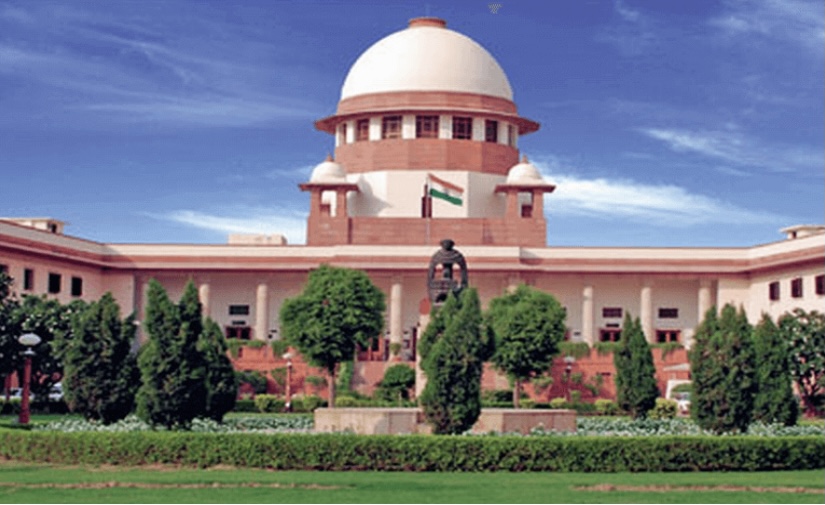Former Union Minister Jairam Ramesh Moves Supreme Court Challenging The Recent Tribunal Reforms Act, 2021

Former Union Minister, Jairam Ramesh has moved to the Supreme Court in a plea challenging the recent Tribunal Reforms Act, 2021. It is the contention of the petitioner that the impugned Act has legislated the same provisions which were struck down by the Top Court in Madras Bar Association Case, decided by the bench of Justice LN Rao.
Section 3(1), 3(7), 5 and 7(1) has been specifically contended to be ultra vires Article 14, 21 and 50 of the Constitution.
“The impugned provision also nullifies the directions of this Hon'ble Court in MBA-III2020 which directed the Union to make appointments to tribunals within three months from the date on which the Search-cum-Selection Committee completes the selection process and makes its recommendations,” the petition says.
Reliance is further placed on L. Chandra Kumar v. Union of India, (1997) 3 SCC 261, Union of India v. R Gandhi, President, Madras Bar Association, (2010) 11 SCC 1 and settled precedents on Colourable Legislation.
Grounds inter-alia preferred by the Petitioner:
- The principle of Separation of Powers is a part of the basic structure of the Constitution and applies to Courts and Tribunals Alike – “The exclusion of the Judiciary from the control and influence of the Executive is not limited to traditional Courts alone, but also includes Tribunals, since they are formed as an alternative to Courts and perform judicial functions.”
- Violation of Separation of Powers negates Right to Equality under Article 14.
- Proviso to Section 3(1) of the Tribunals Reforms Act, 2021 is unconstitutional in so far as it violates Article 14 and 50 of the Constitution – the proviso to the said section bars appointments to tribunals of persons below 50 years which prima facie is violative of A.14.
- Section 3(7) Tribunals Act which mandates recommendation of a panel of two names by the search cum selection committee to the Central Govt. – violates principles of Separation of Powers and Judicial Independence.
- While the Madras Bar Assn. judgment directs the union to make appointments to the Tribunals within three months of the recommendation by the Search cum Selection Committee, Section 3(7) grants discretion to the Govt. to fulfil the same “preferably within three months”
- Section of the Impugned Act is Identical to provisions of Section 184 (11) of the Finance Act, 2017 – which was set aside by the Madras Bar Assn. judgement.
- All impugned judgments begin with a non-obstante clause stating – “Notwithstanding anything contained in any judgment, order or decree of any Court, or in any law for the time being in force.”
Notably, the Supreme Court today asked the Centre to respond on pleas seeking filling up of vacancies in various Tribunals and constitution of Good and Services Appellate Tribunal.
A Full bench of Chief Justice NV Ramana, Justice Surya Kant and Justice Aniruddha Bose, while directing the Centre to respond within 2 weeks, referred the observations in Madras Bar Association case;
“It is open to the legislature within certain limits to amend the provisions of an Act retrospectively and to declare what the law shall be deemed to have been, but it is not to say that a judgment of a Court properly constituted and rendered in exercise of its powers in a matter brought before it shall be deemed to be ineffective and the interpretation of the law shall be otherwise than as declared by the Court.”
“Parliament has all the powers to make law but at least we should know what is the reason behind it. I did not see any debate on the matter,” said Hon’ble CJI today.
It was the submission by Ld. SGI, Tushar Mehta that pursuant to the previous hearing, appointments have been made to the Central Administrative Tribunal.
“I am bound by what has fallen from your Lordships but I cannot make a statement on something which has been done in the wisdom of the Parliament,” said SGI Mr. Mehta seeking time to respond.
Tribunals Reforms (Rationalisation and Conditions of Service) Bill, 2021 abolished tribunals formulated under the Cinematograph Act, 1952, the Trade Marks Act, 1999, Copyright Act, 1957, Customs Act, 1962, Patents Act, 1970 and Airports Authority of India Act, 1994, transferring pending cases to commercial/civil courts or High Courts.
Case Title: Jairam Ramesh v. Union of India
